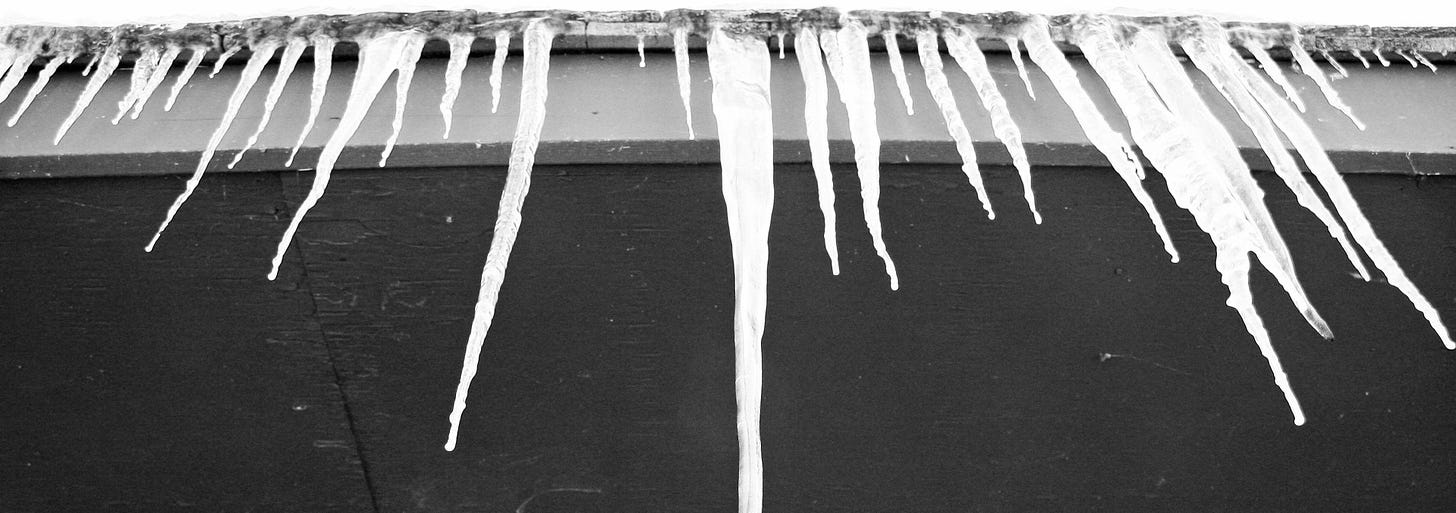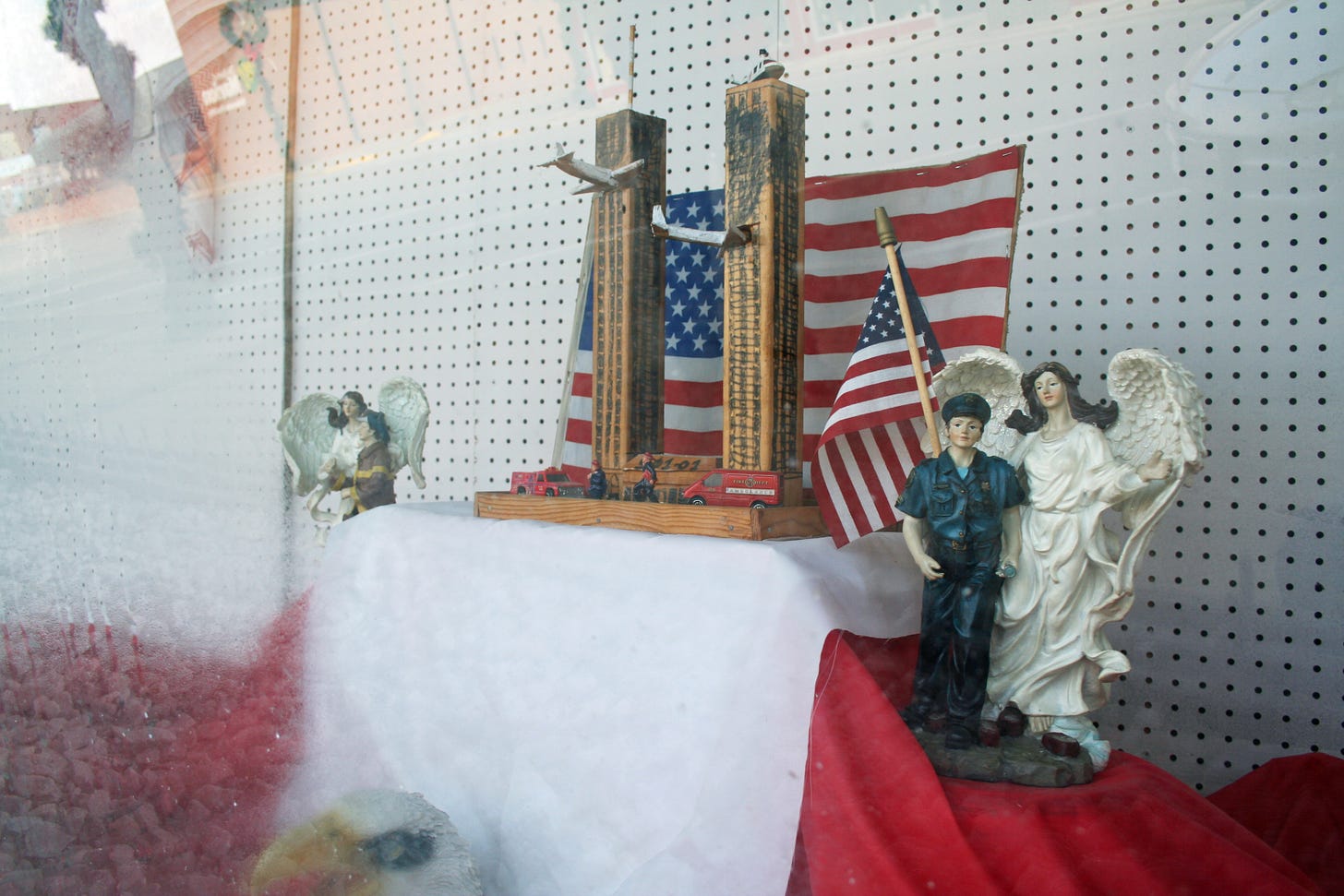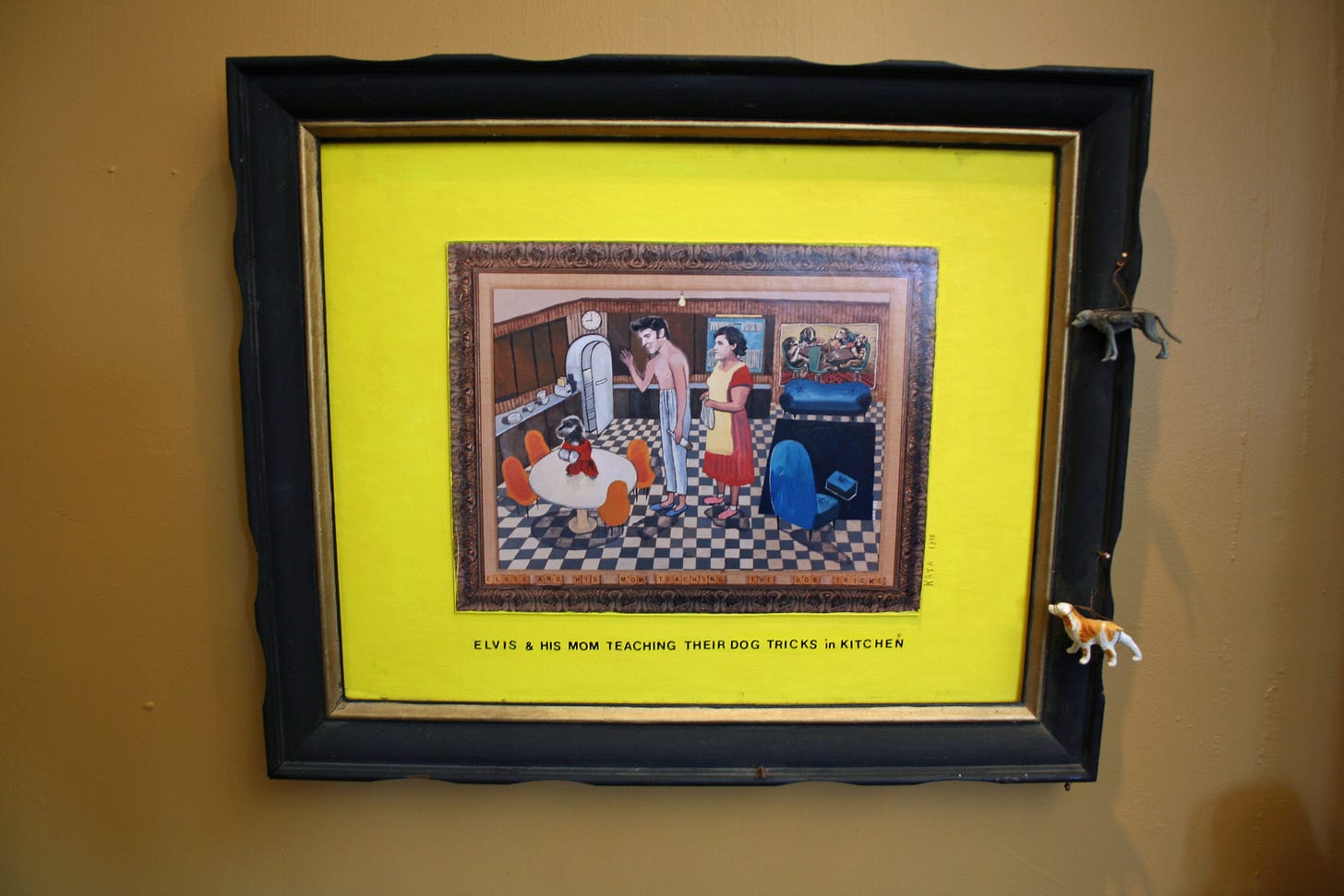Building Harmony
What kind of government do we want? And what kind do we deserve? Looking back in history, it seems that people were more prepared to experiment, although the challenges they faced were not dissimilar to current ones.
In 2006 I went on a road trip across America visiting the sites of forgotten and – do I need to say it? - failed utopian settlements. We started at Walden Pond, where Henry Thoreau wrote his famous essay, then headed west. There was me and a film team, led by Dan. Sadly the channel that commissioned our film never got off the ground, but the journey was fascinating. Donald Trump was a decade away from the presidency, but out in the boondocks, a deep seam of resentment and reactionary views was revealing itself, fired up by fury over the Twin Towers and Washington elites.
Somewhere in West Virginia we pass a sign that reads, ‘Hell is Real’ and pull in at the next diner. It’s dark and getting cold. The weather forecast is grim: an ice storm is rolling in from Canada and temperatures are set to plummet. I grew up in the period when imperial measures were abandoned for metric and consequently am totally confused. I buy petrol in litres, but beer in pints. I weigh myself in stones, spuds in pounds and luggage in kilos. Worst of all is temperature. We were taught to multiply by five, divide by nine and then do something with 32, but I can’t remember what. Or was it multiply by eight? I’m stuck in a weird limbo in which ‘warm’ is 70 but ‘hot’ is 40.
The diner looks fine, like in the movies. Entering, we are hit by a thick heated fug and a sign: ‘This will remain the Land of the Free only so long as it is the Home of the Brave’. Each table has pink leatherette seating and a pole next to it for your jacket and cap. No one takes their cap off around here. Brave, big-boned truckers in braces tuck into vast plates of yellow food while waitresses hover in uniforms that were apparently designed in 1955 by Paramount Studios. The menu was written at about the same time. Burgers are measured in pounds. Under one entry that boasts of ‘one pound of prime Aberdeen Angus’ are added the words, ‘Healthy-eating option’. I select this. When it comes, it is exactly the same as Dan’s unhealthy-eating option, except there is one lettuce leaf the size of a postage stamp on the side of the plate. The waitress helpfully brings sixteen fluid ounces of Ranch salad dressing to help me force this medicine down. I could listen to her say, ‘Ranch’ all day. Excuse me, what type of salad dressing is this? ‘Raa-inch’.
We are already a bit tired of American road food. I’d had a nasty pizza overdose psychosis meltdown near Syracuse. We had gone there to see the Free Love experiment that was Oneida in the 1840s. The old mansion house with its multiple doors off several landings (to enable discreet sexual encounters) is now a B&B and apartments. In one of these I discover an old man whose long-dead father had been born in the community shortly before it fizzled out at the turn of the 19th century. “They put their shoes outside to indicate they were available for sex.” The old man seems quite nostalgic for the era he never experienced.
On the road south into the Appalachians I had to run from a pizza restaurant. The rancid smell of cooked processed cheese made me gag. That night we stayed with an Amish family and the food improved although, I noted, even these backwoods hicks used creamer powder in their coffee. Over breakfast pancakes they complained about the police helicopter searchlights at night. Abandoned Amish barns had become prime locations to set up meth labs.
From Appalachia we turned west towards our ultimate goal, San Francisco, and motored into West Virginia and the diner.
At the next table is a huge man who leans around for a chat. ‘Say, where y’all from?’
He used to live in Florida, but a hurricane destroyed his house and business so he decided to head back to West Virginia, the family home. On the way he had a head-on collision, but survived. How is he finding his new life?
“Too many cops round here and them democrats trying to take away our freedoms. Some of ‘em would ruin Christmas. D’you know the price of soda now? Jesus. And Harleys, probably made in China anyway. Maybe I’ll move to Norway. I was in Nam. Agent Orange got me.”
After ten minutes of his ranting, he abruptly stops. “Well, y’all have a great day!” And leaves.
We breathe a sigh of relief. The waitress slaps a Key Lime pie in front of me, then sprays it with an aerosol can of foaming cream-like substance while chuckling maniacally, “That’s a mess o’ cream, aint it? Never git ‘nuff. ‘joy.”
I suppose ‘a mess’ must be a unit of measurement. Imperial.
We escape and hit the road west. We leave West Virginia and roll across Ohio, looping around Cincinnati, then on into Indiana. Our goal is the tiny town of New Harmony on the Wabash River.
In 1825 a Welsh entrepreneur called Robert Owen bought this remote town and tried to build a utopian paradise. Owen was no idle dreamer, he had risen from tough working class roots in mid-Wales to being one of Britain’s most successful businessmen. At a place called New Lanark in Scotland he had made a packet of money from textiles. Unusually, however, he did not then follow the traditional route of the self-made man, splurging vast sums on ostentatious displays of vulgarity and leaving the remainder to his children to squander. Owen was different. He built playgrounds and kindergartens for his workers’ children; he started a cooperative shop that sold well-made goods cheaply. Having barely no formal education himself, he made sure his workers did, building free schools. He also gave them pensions, medical services and low rent housing. He stopped corporal punishment and child labour. He believed that the combination of good living conditions and excellent education would make better, and happier, people. The only way forwards was to give people better lives, then they would become better people. He was, I suppose, absurdly optimistic.
In Scotland Owen’s New Lanark innovations and schemes drew praise and criticism. His fame spread. Count Nicholas Romanov, later Tsar of Russia, came to visit and was impressed (the Tsar’s early idealistic hopes soon became expansionist dreams and ended with the Crimean War).
But despite all his success, Owen was restless. In 1824 he set out for America where he bought an entire town from a German religious sect, the Rappites, whose own attempt at paradise-building had failed. Some relics of their utopian dream still remain, dotted around the modern town.
We reach New Harmony after dark and head for the only bar in town. The barmaid listens in amazement to our accents. “Where y’all from?”
“York.”
She misunderstands. “Hey, I’d love to go to New York sometime, but I’d need to be ready otherwise they’d take me right off – see me right away - I’m just an outcast – a hokey.”
When we leave the bar the temperature has dropped from to 29 f and ice is forming on the trees. At the B&B, the thermometer on the stoop reads 18 f. It’s like the earth’s heating system has collapsed and we are spiralling downwards. During the night I can hear trees exploding down by the river. The cold is so severe that branches simply rupture, or the weight of ice rips them off the tree. Between the tree explosions, there’s a kind of silence that roars.
Next day we find a lovely town of old wooden shopfronts. Most people get around on golf carts. At the former Rappite granary, there’s a display of woodcarving going on and I stop to admire the skill of one craftsman called Ben. We get into conversation. He doesn’t know about Robert Owen, but he knows his family have been on the run from religious fundamentalism for several generations. “It started in France in the fifteenth century. We were Huguenots and got kicked out. Went to East Prussia, then Alsace.”
He is working on a fine filigree of oak leaves. “I don’t know what your Robert Owen would make of this place now. We had a Buddhist convention and some lamas from Tibet came over for it. The local evangelicals turned up with placards denouncing the satanists. Another time the cops picked up a guy for looking like an Arab. Turned out he was Hawaian. I blushed for a week. ”
Owen’s settlement attracted about a thousand people in the first year, including one called Joseph Warren who believed in replacing money with a system of certificates of work. The value of any item to be sold was measured in the hours of work it took to produce. Workers were paid for their hours. At Warren’s Time Store, you could swap your hours of labour for goods - with an added 7% for the shop. However, from the moment you started shopping the price would rise, to account for the time spent by the retailer helping you. Warren’s shop was popular, but he had only done it to prove such a system could work and soon closed it down. He went on to be considered the father of American Individual Anarchism. Some theorists regard his system as the progenitor of crypto-currencies.
Owen’s New Harmony ran out of gas pretty quickly. Owen’s son David, who continued living there, alluded to the reason when describing some of the inhabitants as ‘lazy theorists’ and ‘unprincipled sharpers’. Robert Owen himself returned to Britain, becoming more radical as the years went by, then finally a spiritualist before he died, penniless, back where he had started in Newtown, mid-Wales. One of his reported last utterances was to a friend, “"All the world is queer save thee and me, and even thou art a little queer.”
After a second night at the B&B we leave, stopping at Ben, the woodcarver’s studio, to say goodbye. Surrounded by chisels and shavings, he is starting on a quotation from Rabindranath Tagore. ‘God wants his temple to be built of love, but men bring only stones.’
Out along the Wabash River towards St Louis, the ghostly trees seemed stunned by the frost. The outside temperature is either minus four, or twenty, depending on your system of measurement. But you don’t need a thermometer to know this. At such an intensity of cold, your eyeballs go smeary and the hairs inside your nostrils crackle. You know that if you stop moving, you will die.







Ah, now this one hits closer to home. Not the utopian part, but the diner food and conversations. Did you ever find a “not forgotten” utopian experiment that is still in the works?